President Joe Biden’s decision to withdraw from the 2024 presidential campaign and endorse Vice President Kamala Harris upends the contest and alters its policy and strategic dynamics. It pits a younger Democrat against an older Republican, a woman of color campaigning against a white man, and a former prosecutor from California versus a New York/Florida billionaire.
In this blog, we compare how a President Harris and a re-elected President Trump would differ on major tech policy issues. In particular, we compare their views on Biden’s artificial intelligence (AI) Executive Order, antitrust enforcement, taxes, racial/gender biases, cryptocurrency regulation, and digital equity. There is a vast gulf in how each leader would handle these pressing tech matters and what they would do to shape the future of digital technologies.
Biden’s AI Executive Order
One of the hallmarks of Biden’s technology agenda was an ambitious executive order calling for greater public oversight and regulation of AI. AI is the transformative technology of our time, seeing implementation in virtually every sector. As such, President Biden issued an executive order, which called for every federal agency to examine the impacts of AI in its specific sector and the avenues for addressing its problems. He gave agencies several months to review their AI usage and oversight, with deliverables due sometime in December 2024.
Former President Trump’s platform seeks to repeal the executive order, while a President Harris likely would keep it. In general, Trump supports a lighter regulatory touch on AI and other emerging technologies. In his initial term, very little news was generated around AI regulation.
In contrast, Harris understands the way AI is transforming communications and service delivery, and the need for public oversight. She likely would extend Biden’s executive order and urge Congress to pass legislation that would codify greater protections to promote consumer privacy, cybersecurity, and human safety. She might also encourage the federal government to use its procurement power to make sure agencies provide appropriate guardrails for their AI use.
Antitrust enforcement
A President Harris would likely continue Biden’s tough antitrust enforcement. She has talked repeatedly about the need to reduce inflation and improve economic opportunity for all Americans. The administration has gone after large platforms, which they feel have abused their strong market positions and engaged in predatory behavior that has harmed consumers and made it harder for people to buy necessary goods.
Trump probably would not be as vigorous at anti-trust enforcement as Biden and Harris have been. He might continue current tech antitrust enforcement cases but would give a green light to tech mergers and acquisitions. His business background makes him generally more sympathetic to the business community, and he is unlikely to appoint strong enforcers to the Department of Justice, Federal Trade Commission, or Federal Communications Commission. That was the case in his first term as president and likely would continue if he wins another term as chief executive.
Tech billionaire taxes
Trump has indicated he wants to extend his 2017 tax cuts when they expire in 2025 and cut income and corporate taxes even further. Even though a considerable amount of his earlier tax cuts went to rich individuals and wealthy corporations, his tax cut plans likely will continue those trends and push cuts in those directions.
Harris likely will continue Biden’s avoidance of income tax increases for those earning less than $400,000. But like President Biden, she wants to raise taxes on the ultra-wealthy on grounds they need to pay their fair share. Those tax increases would help pay for needed services for less-fortunate people.
Racial/gender biases
There are well-documented racial and gender biases in AI that need to be taken seriously. Trump does not have a track record of supporting strong bias mitigation efforts, especially for racial bias, or of appointing regulators who take tough action in these areas. He has made many dubious claims in this area, most recently using the term “Black jobs“ in the last debate—a term for which no one still has ascertained the meaning. In fact, he has been part of a swarm of diversity, equity, and inclusion (DEI) critics that have condemned the use of race in college admissions on the grounds that such preferences no longer are warranted.
Harris, in contrast, has a record of fighting racial and gender biases and supporting effective enforcement actions against those who violate basic rights. She has fought for anti-discrimination action in housing and wealth creation and has spoken clearly on the importance of effective government action. Her focus on these issues will likely continue as she forms a more pro-consumer, tech policy agenda.
Cryptocurrency regulation
The two candidates differ considerably regarding cryptocurrency regulation. Although Trump previously supported tough regulation against cryptocurrencies, he has recently moderated his position and advocated for a lighter approach. His view appears to be that crypto is an innovation that requires some time to work out and does not require tough oversight at this point.
Unlike her Republican opponent, Harris has a tougher stance on cryptocurrency regulation. She thinks consumers need adequate protection and there should be greater transparency in the crypto marketplace. Administration appointments already have called for tougher U.S. Securities and Exchange Commission (SEC) enforcement against cryptocurrency firms.
Digital equity
In her new book, “Digitally Invisible: How the Internet is Creating the New Underclass,” Nicol Turner Lee argues that who gets into office often determines the scope of national tech policy, especially when it comes to the rewards for industry and communities. During his administration, Trump upended all of Obama’s policies from data privacy to school connectivity, including those connecting the nation’s schools to the internet. However, Trump did advance policies for more robust 5G wireless infrastructure, especially in rural communities.
Under the Biden-Harris administration, the largest allotment of funds has been allocated toward national broadband infrastructure under any administration, and federal agencies are steep into getting states the funds to launch their approved projects. If history is a dictate, Trump will halt all those programs and attempt to recoup the funds, while Harris would stay committed to bringing broadband to all communities.
With the election more than three months away, it’s still too early to tell how each candidate will fare. But what is expected of Harris, assuming she secures the Democratic nomination, is that she will continue many of the tech policies of the Biden administration and stay that course as president if she were to win.
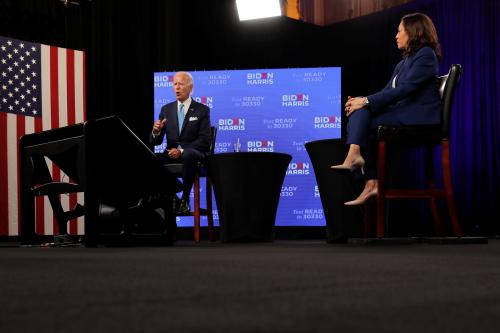
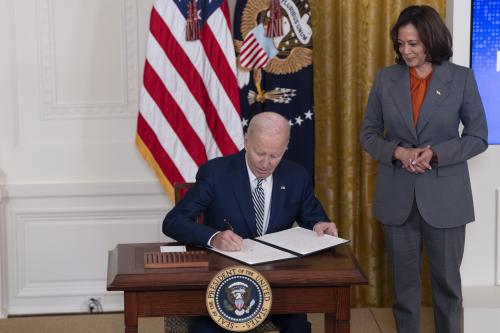
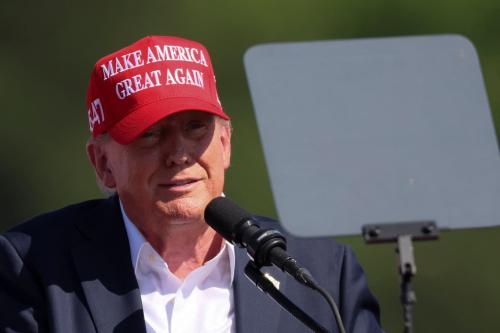


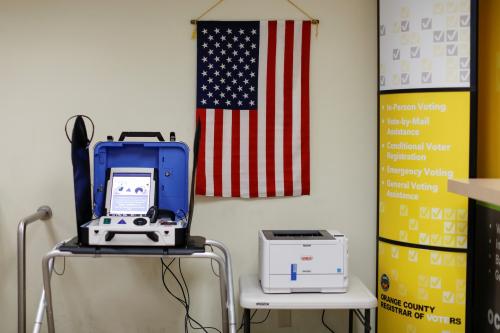
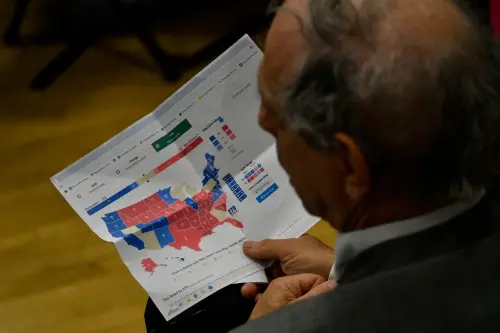
Commentary
How Harris and Trump differ on tech policy
July 23, 2024